58% of Republicans think Donald Trump is being framed by the FBI and DOJ
Cambridge Analytica’s use of Facebook-derived data has brought more scrutiny to the social media platform, and the latest Economist/YouGov Poll suggests that what bothers users most is selling users’ private data. More users are concerned about that than the platform giving personal information to law enforcement or using it in targeted advertisements.
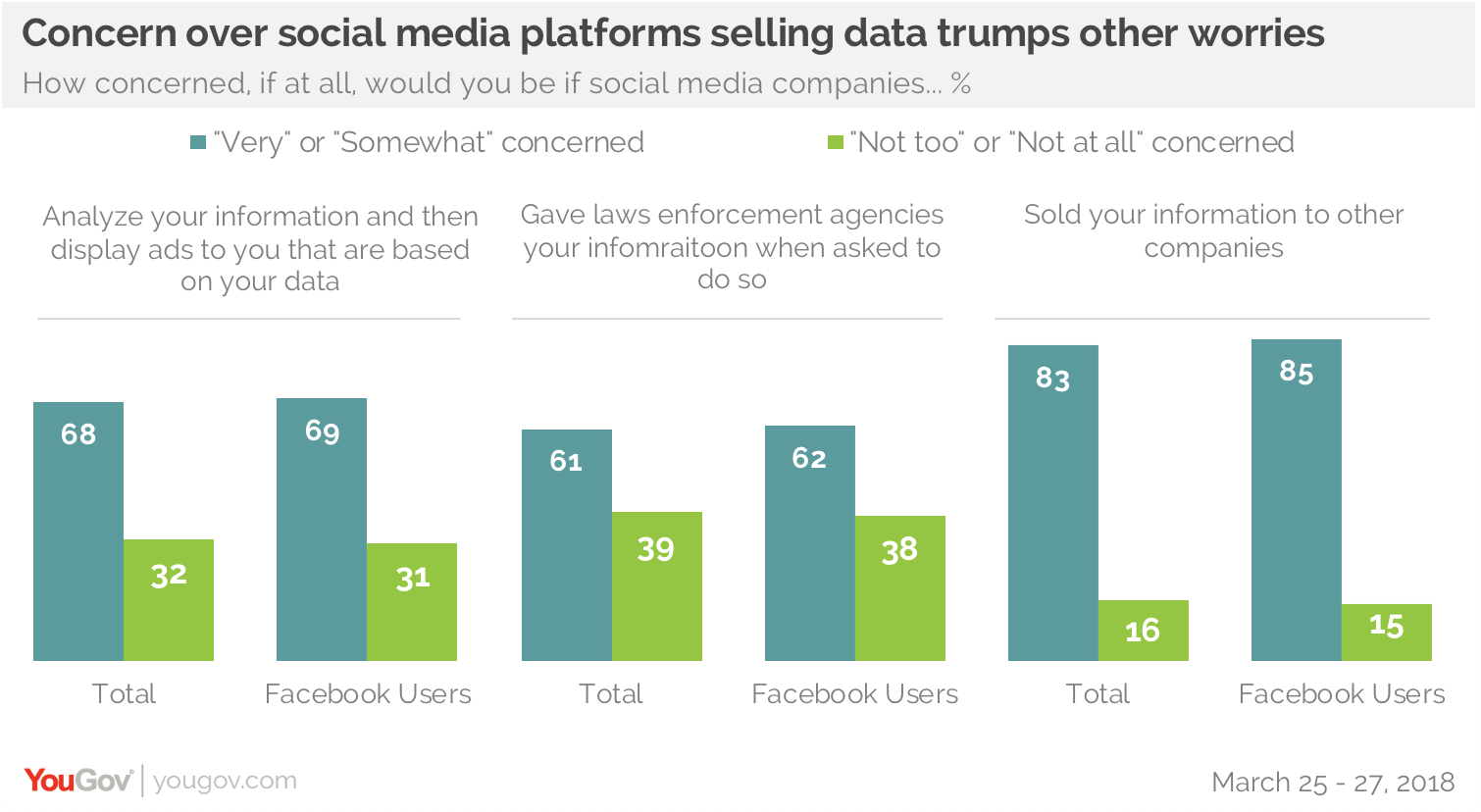
Six in ten of those who use Facebook at least once a week are very concerned about the company selling their data – the only one of the three questions about data use on which there is a clear difference between users and the public as a whole.
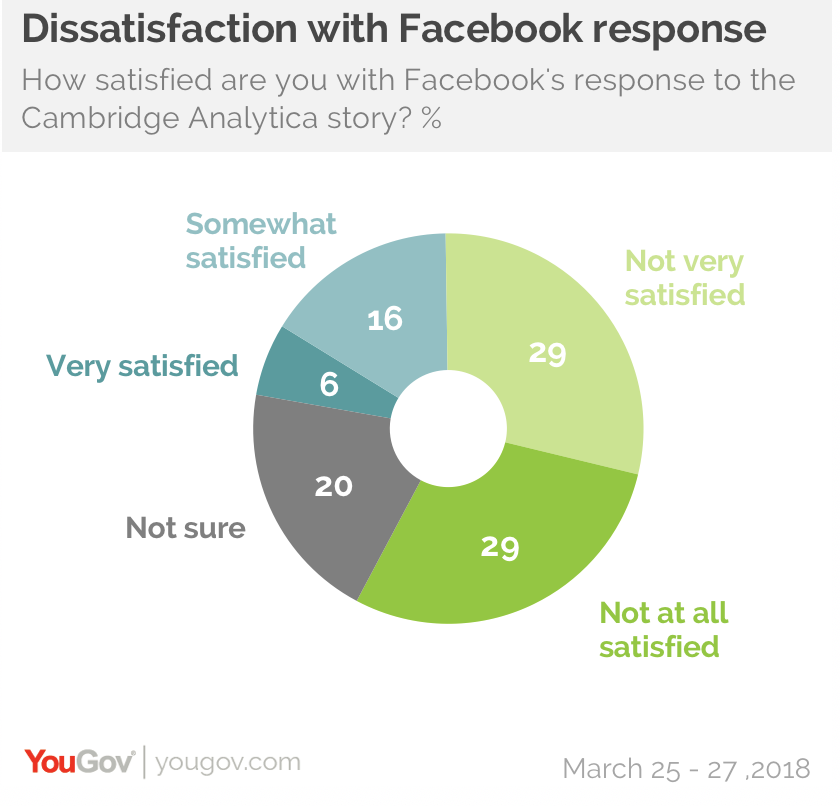
The Cambridge Analytica/Facebook story is one that most Americans – both Facebook users and non-users have heard at least something about. Those who use Facebook are not happy with how Facebook has responded to the revelation.
This is not a partisan issue. Majorities of both Democrats and Republicans are dissatisfied with Facebook’s response.
There are some users who one might expect to be more worried than others – those who participated in Facebook quizzes, and those who downloaded Facebook apps, both ways that personal information and information about an individual’s friends were gathered. One in four of those who use Facebook at least once a week downloaded the free apps; 40% took at least one quiz. People who access Facebook several times a day were even more likely to take quizzes; 49% of the most frequent users say they did.
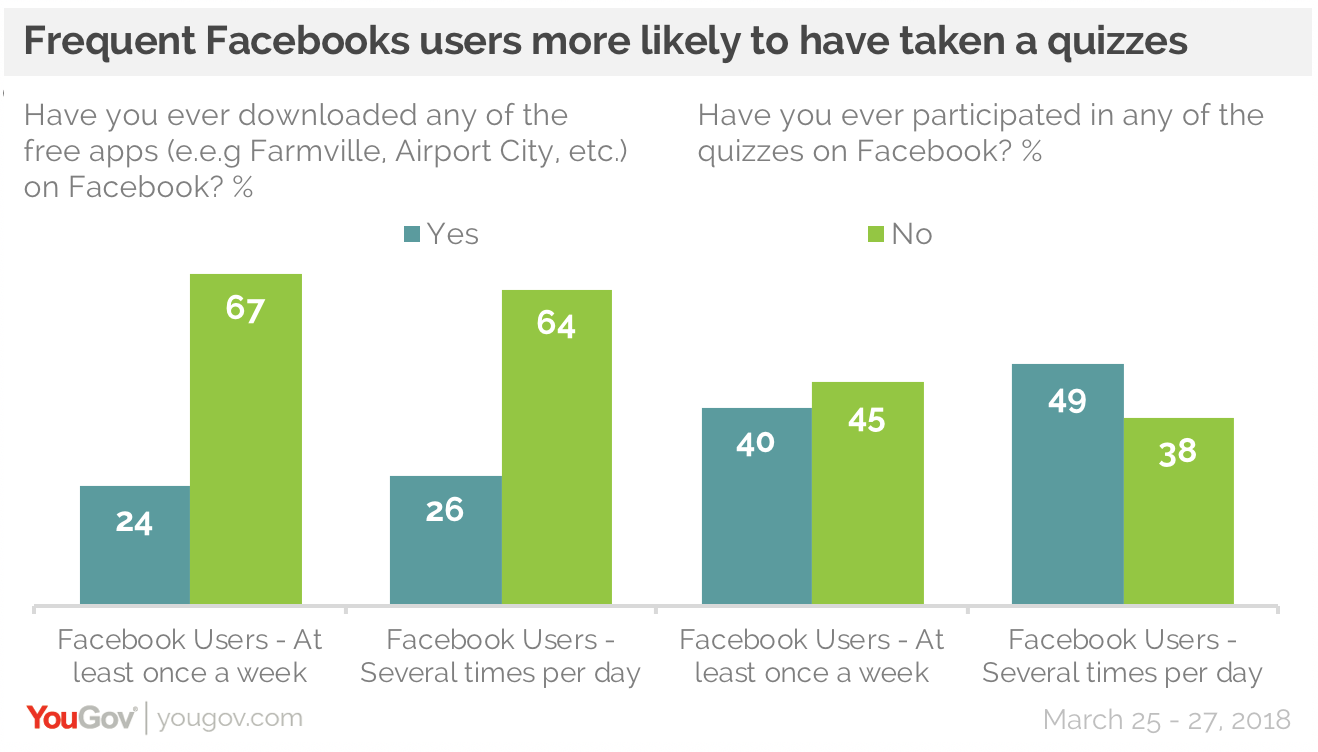
Those who never downloaded free apps or took Facebook quizzes are just as worried as those who did about their personal data being sold.
Most Americans are pretty sure they saw fake news online during the election, with Republicans more likely than Democrats to say they had. Two-thirds of Democrats say they probably or definitely saw fake news, while three in four Republicans say they did. Even more of those who were on Facebook at least once a week saw fake news. But – by 70% to 19% – Americans are pretty sure they can spot fake news when they see it.
Of course, we will never know whether in fact Americans in 2016 could tell what was real and what was not – in an Economist/YouGov Poll conducted in December 2016, 38% of the public and half of Republicans thought the “Pizzagate” theory of Clinton campaign emails containing coded messages about pedophilia was probably or definitely true.
Special Counsel Robert Mueller’s investigation of Russian activity in the 2016 election now includes questions for Cambridge Analytica. Americans mostly support that investigation. By 49% to 29% the public approves of the appointment of the Special Counsel, though Republicans take a different position – half of Republicans disapprove, a third approve.
Pluralities of all political groups overall – including Trump voters – don’t think Mueller should be fired. However, 58% of Republicans believe the FBI and the Department of Justice are trying to frame the President.
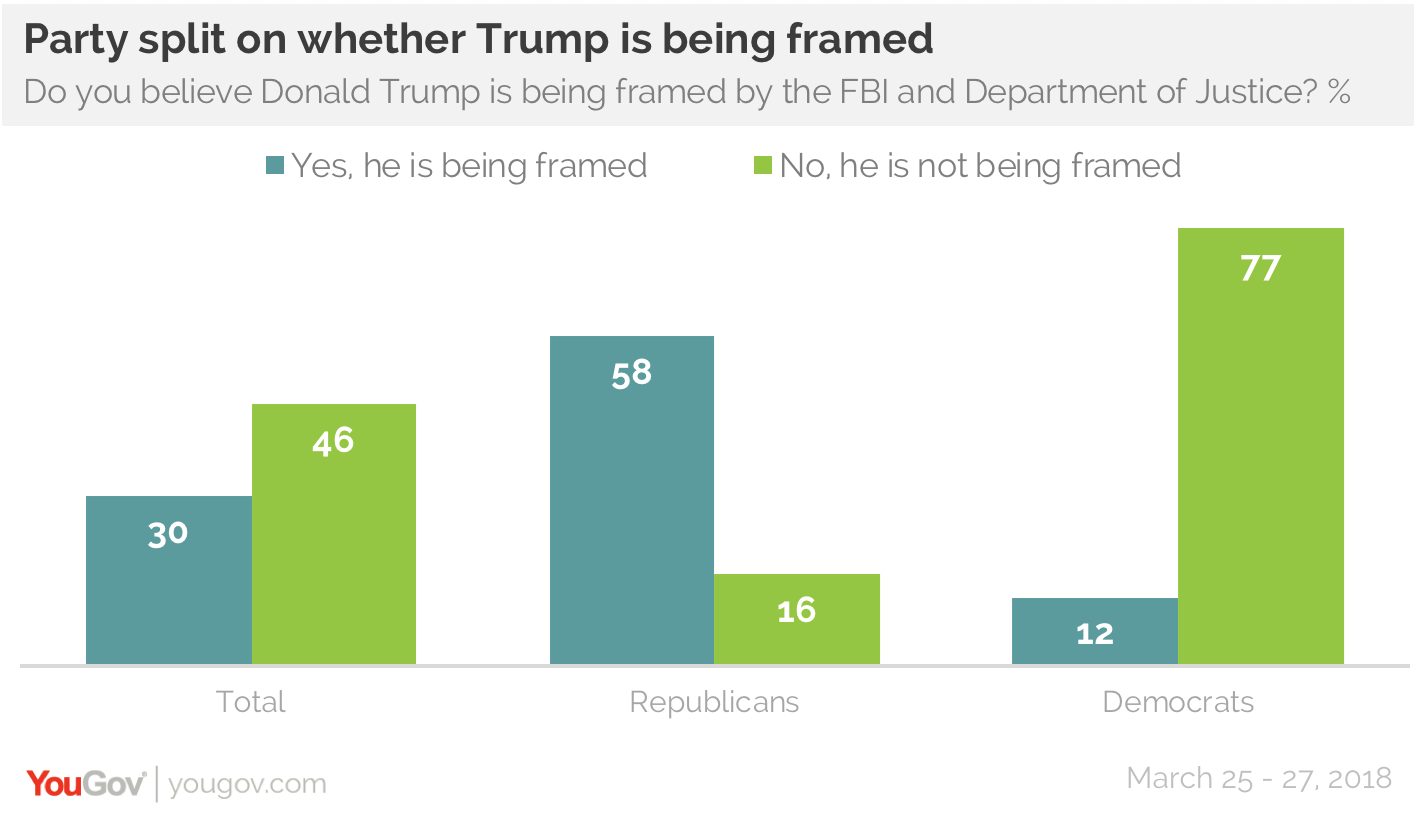
There also are party differences on whether whatever the Russians did made a difference. Democrats think it did, Republicans disagree.
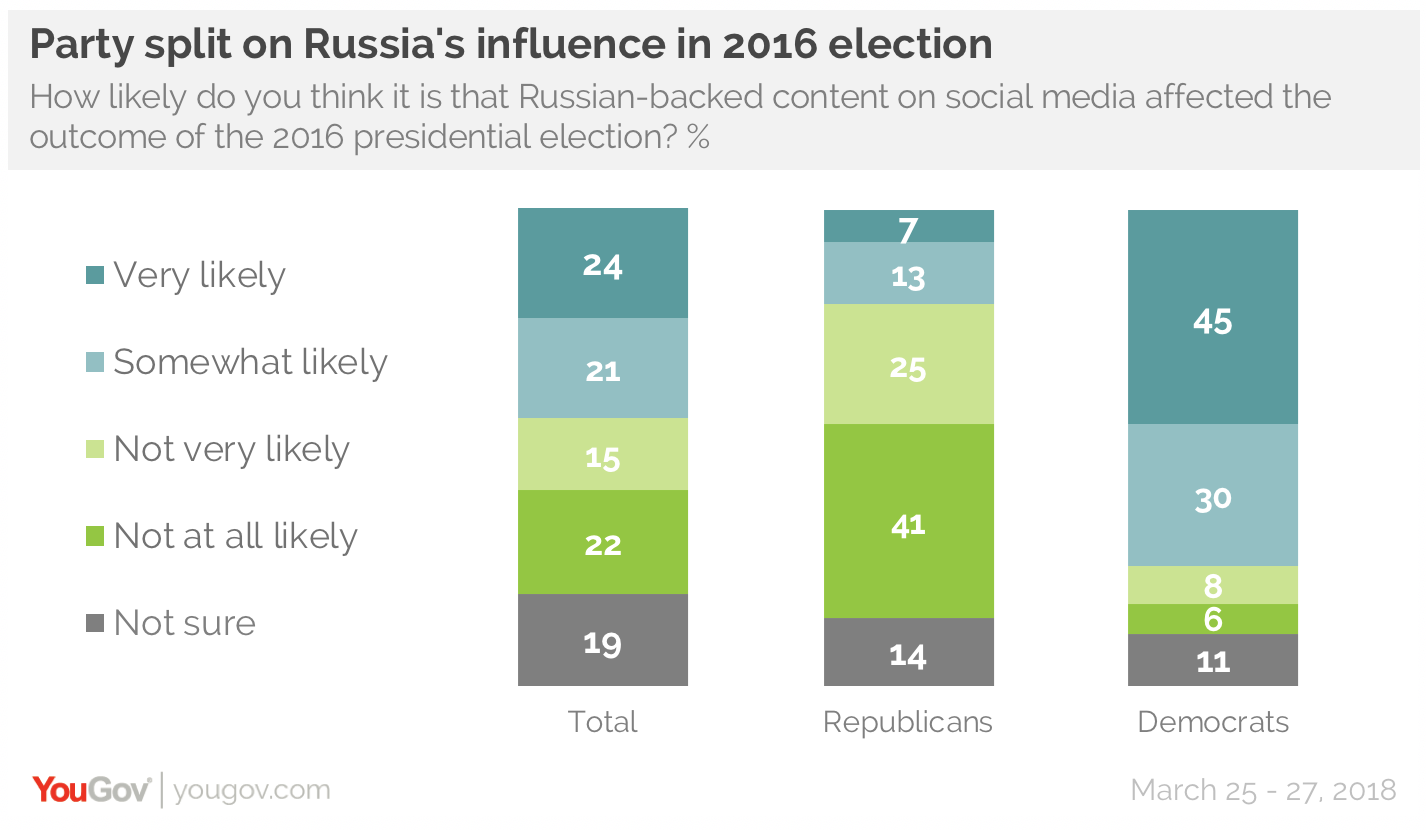
This is not the only social media controversy. Last week, in the wake on the President’s firing of Secretary of State Rex Tillerson via Twitter, Republicans divided evenly (41%-39%) on whether or not the President’s use of Twitter was appropriate or not. This week, the percentage of Republicans saying his Twitter use is appropriate jumped ten points, with 51% of Republicans now saying his use is appropriate, and 30% saying it is not.







